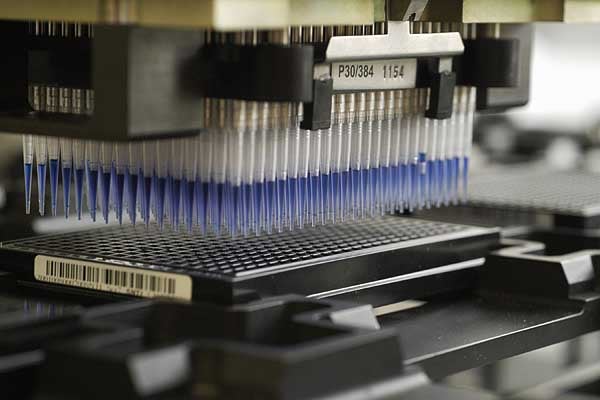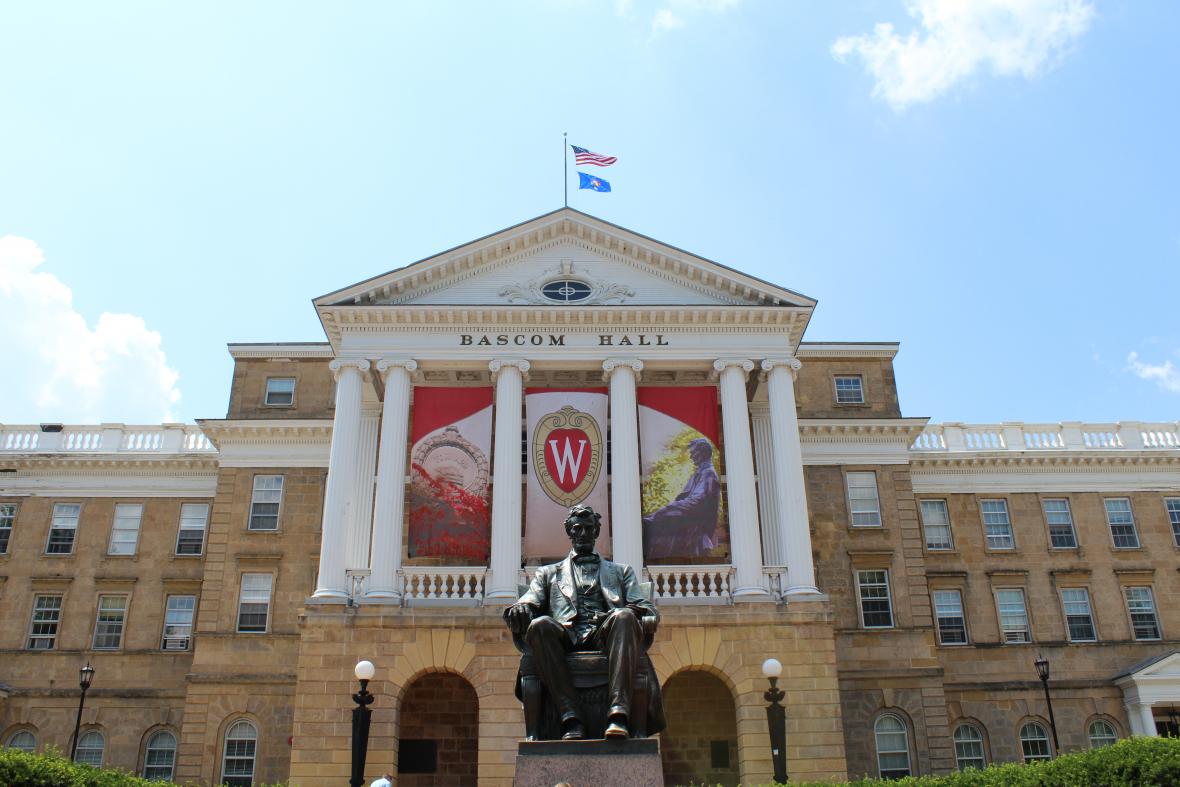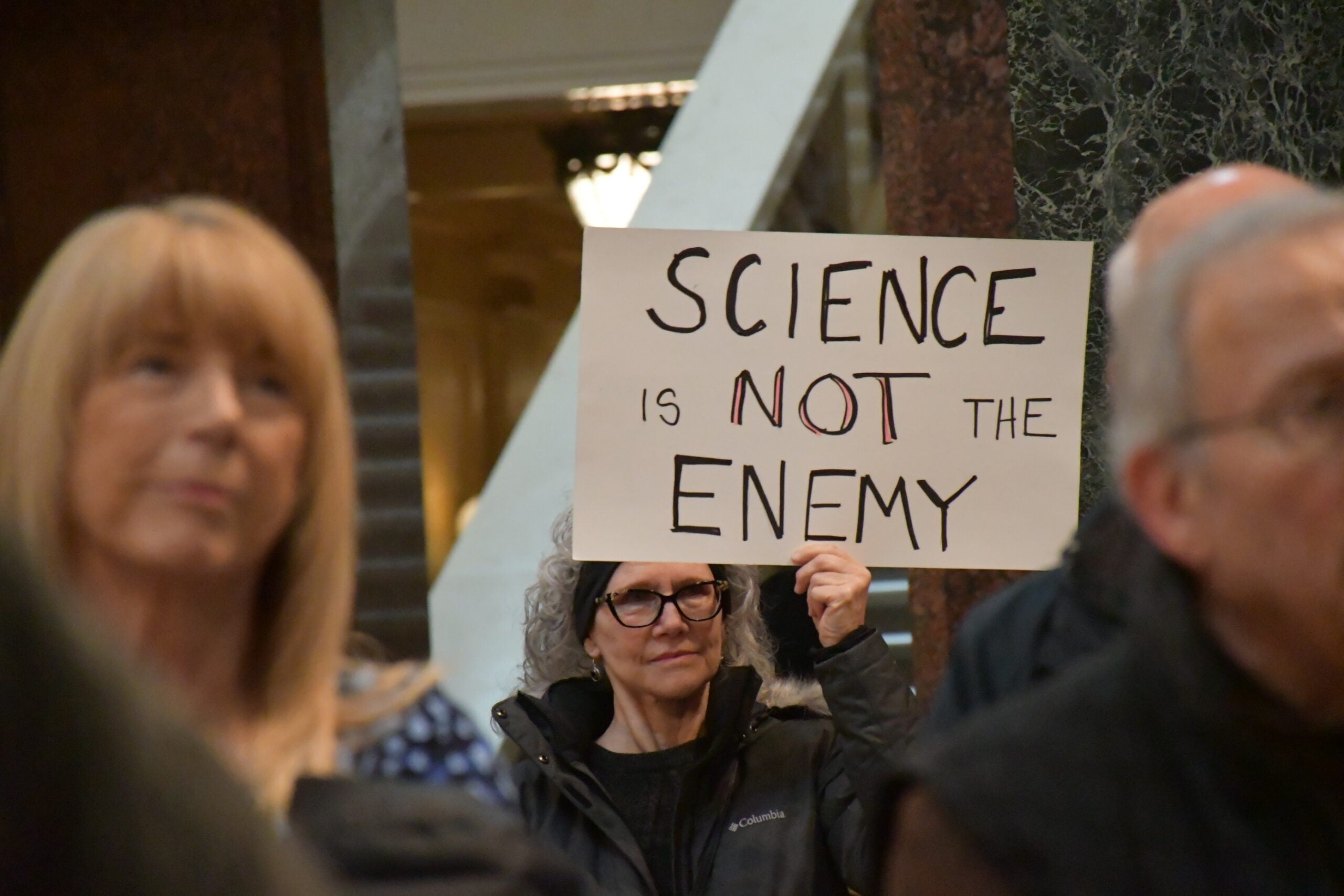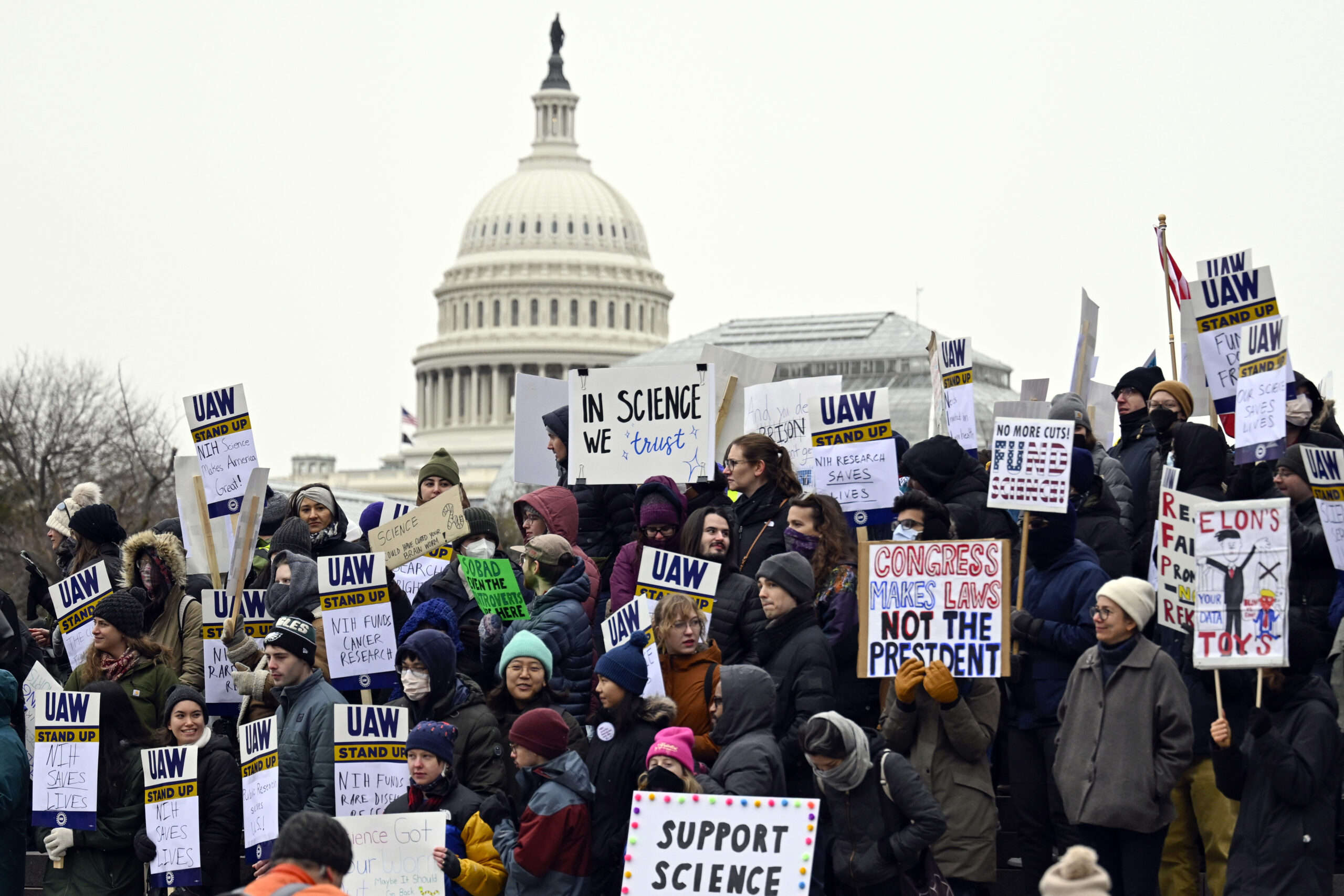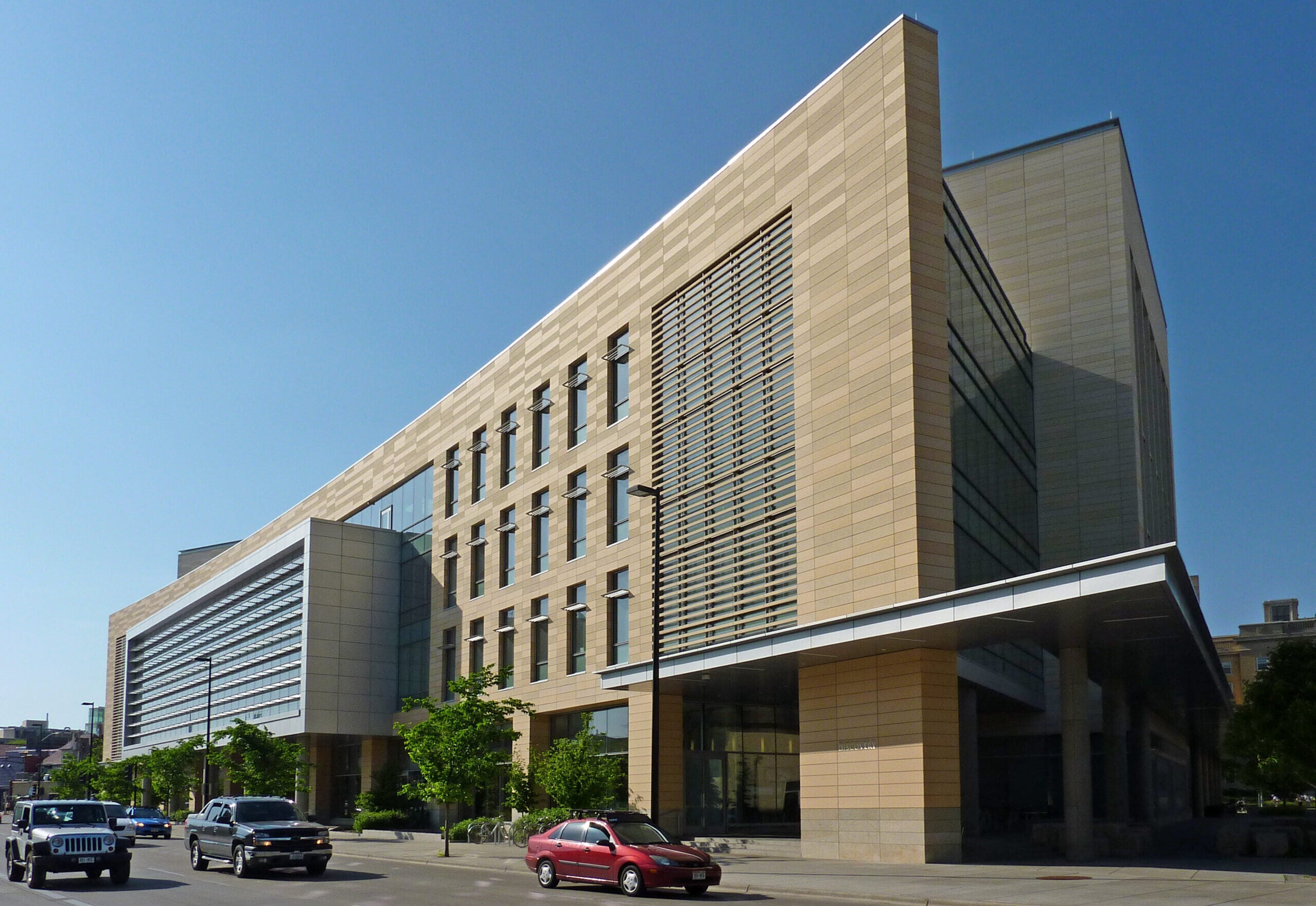The University of Wisconsin-Madison said the decision to cut National Institutes of Health funding, or NIH, will “significantly disrupt vital research activity and delay lifesaving discoveries and cures related to cancer, Alzheimer’s disease, diabetes, and much more.”
The NIH announced last week it is making cuts to grants that support research institutions by limiting the amount of indirect funding for research projects’ overhead costs to just 15 percent beginning Monday.
The cut, which affects spending on things like facilities and administrative costs, is part of the Trump administration’s attempt to reduce the size of the federal government.
Stay informed on the latest news
Sign up for WPR’s email newsletter.
On Monday morning, Wisconsin Attorney General Josh Kaul joined a federal lawsuit filed by Massachusetts Attorney Andrea Joy Campbell against the Trump Administration, the Department of Health and Human Services and NIH. The lawsuit says the defendants are unlawfully cutting funds that support cutting-edge medical and public health research at universities and research institutions across the country. Twenty two states are party to the suit.
By Monday evening, a federal judge issued a temporary restraining order blocking the funding cut.
UW-Madison said the reduction would have “an inevitable impact on student opportunities to engage in research activities.”
According to the lawsuit, NIH’s reduction of UW-Madison’s negotiated indirect cost rate would eliminate approximately $65 million in funding in the current year, and result in a similar reduction in resources available to support research each year.
“Medical innovation will be slowed, delaying the creation of new treatments, new technologies, and new health workers,” a university statement said. “Drastic reduction to this funding will not only disrupt the day-to-day important work of the university but will ultimately harm the livelihoods of real people across Wisconsin and the country, harm the innovation economy and will make our nation less competitive.”
UW-Madison received $465 million from NIH in fiscal year 2023. The university is one of the top research institutions in the country ranking sixth out of 920 public and private universities in research expenditures, according to the National Science Foundation’s annual rankings.
Of its $1.7 billion in research expenditures, UW-Madison spends about 48 percent on indirect costs.
UW-Madison said the “so-called ‘indirect costs’ go to support many aspects of the educational and research work of the university [from] utilities charges to building out the laboratories where science is done, to infrastructure for clinical trials of new medicines and treatments.”
In a statement, UW officials said research has led to creations and discoveries including “weather satellites that save lives during natural disasters to the “UW Solution” that advanced the practice of organ transplantation by extending the viability of human organs.”
NIH funding cap will affect more than UW-Madison
Wisconsin receives about $653 million in NIH awards a year, according to United for Medical Research.
That money goes to the Medical College of Wisconsin, the University of Wisconsin-Milwaukee, Marquette University, Aurora Health Care and the Versiti Blood Center of Wisconsin.
The Medical College of Wisconsin receives about $144 million a year from NIH.
Medical College President Dr. John Raymond said as the state’s largest private research institution, the college is deeply concerned with the cuts.
“Even brief disruptions can halt clinical trials, prevent patient recruitment, and delay the publication of critical findings, affecting the number of patients who could benefit from new treatments,” Raymond said in an email to WPR. “These delays not only hinder scientific progress but also have real-world implications for patients waiting for breakthroughs, highlighting the urgent need for timely support and funding.”
UW-Milwaukee currently has $7.9 million in active NIH grant activity.
The grants support projects including studies on genetic mutations linked to birth defects in children, the effects of hormones on the neuroscience of aging, the behavioral effects of substance abuse, the relationship between environmental toxins and children’s health, and the effects of wheelchair use on shoulder pain, according to a spokesperson with the university.
NIH funding supports more than 40,000 jobs and 2,000 businesses in the state, according to United for Medical Research, a coalition of leading research institutions, patient and health advocates and private industry.
Democratic U.S. Sen. Tammy Baldwin said NIH funding cuts will likely mean layoffs and halt development of cures for diseases.
“Abruptly slashing this funding will mean people might not get the treatments they are relying on, workers from custodians to research trainees to scientists are likely to be laid off, and we will be further away from finding the cures to diseases that plague all of our families,” Baldwin said in a statement. “Elon Musk and Donald Trump are finding every which way they can to cut programs and funding that families in Wisconsin rely on — all in service to making room for their tax cut for the biggest corporations and themselves.”
Wisconsin Public Radio, © Copyright 2025, Board of Regents of the University of Wisconsin System and Wisconsin Educational Communications Board.
